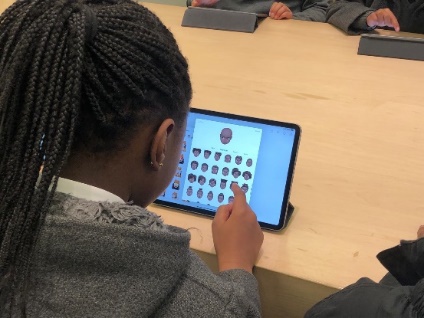Computing
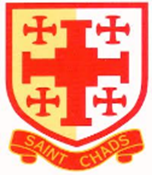
Computing Curriculum Intent, Impact and implementation statement
We aim to create
Informed, Digital, Leaders
Intent
At St Chad’s, we aim to enable our pupils to become masters of technology. The use of technology is ingrained into our everyday lives and will continue to become a pivotal aspect of our pupil’s future. It is therefore crucial that we educate every child on how to use technology in a responsible and safe way. Computing offers many opportunities for creativity, and we want to give every pupil the opportunity to allow this to flourish by offering a broad curriculum which encompasses these main areas: Computer Science, Information Technology, Digital Literacy, Computational Thinking and Emerging Technologies.
We understand that for our pupils to develop these computational skills, the children must have access to a range of opportunities to use technology and encounter the concepts in hands-on activities. Where possible, we encourage staff to embed computing into other areas of the curriculum. We want our pupils to be fluent with a range of tools to best express their understanding and hope by Upper Key Stage 2, children have the independence and confidence to choose the best tool to solve tasks and challenges set by teachers.
As our world becomes wider through the use of technology, we recognise the need to educate children on how this can have ramifications, and that we must utilise this technology in a positive way. We believe that prevention of many issues that are seen in technology today (particularly in regard to social media) comes through discussion and educating children about the implications.
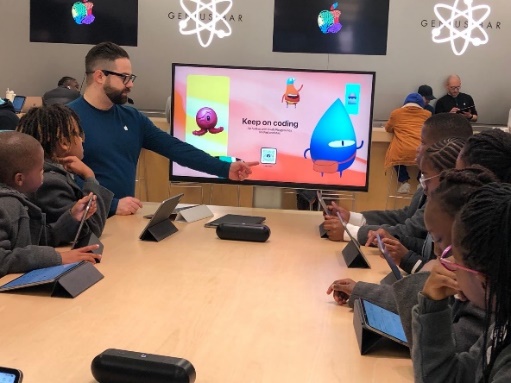
Implementation
Computing is taught in discreet lessons. Each class has a designated timeslot to use the computer suite, to ensure that every child in the school has an opportunity to actively participate in their computing sessions. Having discreet lessons means that the children are able to develop depth in their knowledge and skills over the duration of each of their computing topics. To ensure that our curriculum comprehensively covers the three main areas highlighted in the National Curriculum, we follow the Purple Mash scheme, an award-winning website that enables children to explore and enhance their knowledge in a fun and creative way.
This scheme is used to deliver inspiring and engaging lessons throughout all the year groups in St. Chads. The scheme for Early Years (Reception) shows opportunities for using Mini Mash or Purple Mash as part of the Early Years classroom to support children in working towards early learning goals.
The units for key stages 1 and 2 provide various age-appropriate tasks that promote problem-solving, critical thinking, and creativity, with a strong emphasis on hands-on learning. In every year group, we use Purple Mash to assign tasks, track progress, and encourage collaborative learning. Our approach to identifying and teaching ‘Sticky Knowledge’ helps ensure they retain the key ideas and skills we teach in each unit. Purple Mash provides resources such as quizzes, pictograms and animated pictures to work with the different areas of the National Curriculum, such as English, Maths, Music or PSHE amongst others.
Within the units of work, children also participate in discussions about online safety, to ensure that all concepts and skills are underpinned by the understanding that technology must be used in a responsible way.
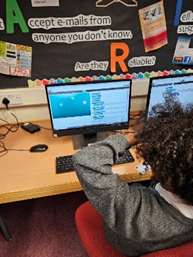
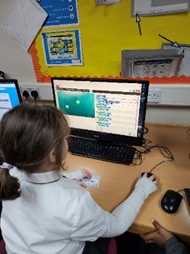
Impact
A high-quality computing education aims to develop a range of programming and technological skills that are transferable to other curriculum areas. As pupils progress through EY, KS1 and KS2 children will become increasingly confident in the application of their digital skills. As well, they will be increasingly efficient and effective communicators, collaborators and analysts and able to show imagination and creativity in their use of ICT in different aspects of their learning and life beyond school. E-safety and the risks involved when using the internet will be learnt and understood.
We seek to inspire a love of computing and to equip every child with the autonomy to apply the skills necessary to use technology. The teaching style that we adopt is as active and practical as possible. The impact of the computing curriculum offered at St Chad’s is assessed continuously against the age-related expectations in computing for each year group. In doing so, we are ensuring that the necessary support is provided for all children to have a good understanding of the primary computing curriculum whilst allowing us to effectively differentiate tasks for students.


